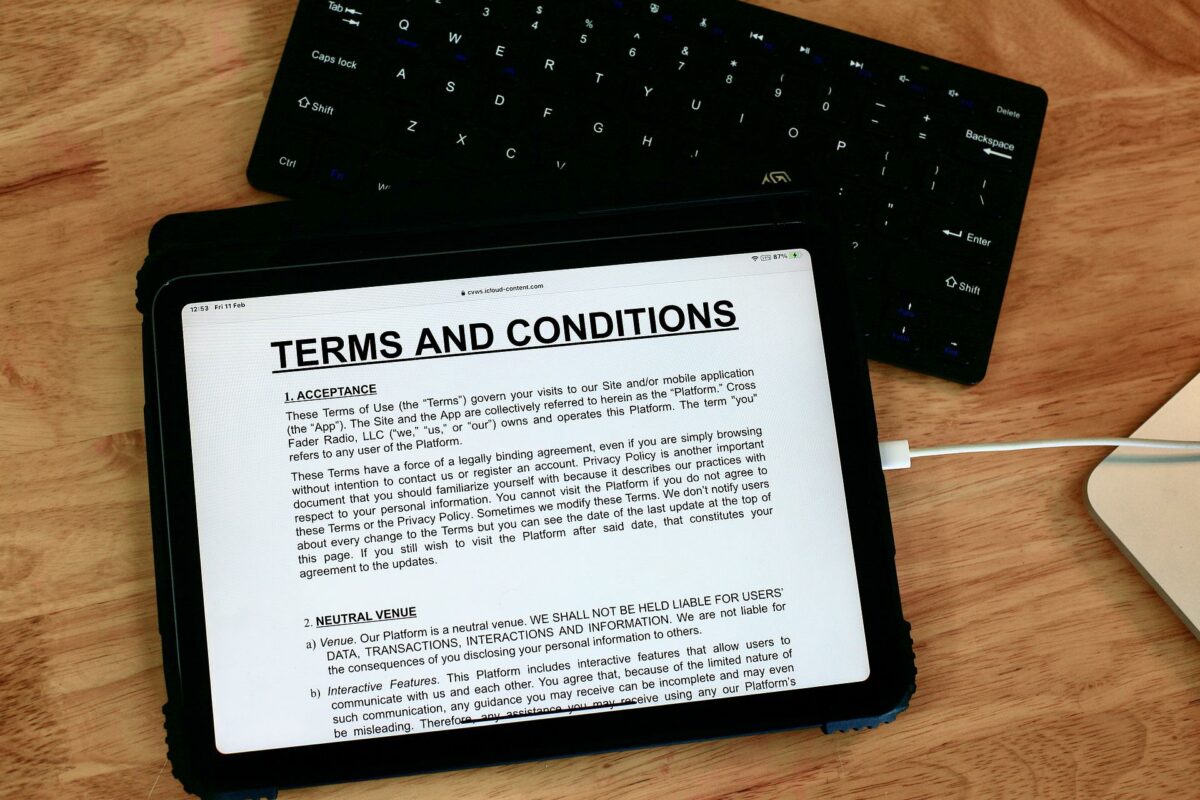News from Members
What is the importance of general terms and conditions under Dutch law?
Many Czech companies are doing business with Dutch companies and vice versa. Practice shows that many companies mainly focus on the contract that contains further agreements, but the general terms and conditions are regularly forgotten. In the event of a dispute, a counterparty suddenly comes up with its general terms and conditions. And of course, these conditions are not favourable for the other party.
The general terms and conditions are hardly negotiated, and the question is whether the other party has been informed properly about the applicability of these terms and conditions. Also, the question arises whether these conditions can be seen as agreed upon, which leads to many discussions. In this article I will briefly explain the importance of the general terms and conditions under Dutch law.
What are the general terms and conditions?
The general terms and conditions are also referred to as “the fine print”. The general terms and conditions mostly include provisions regarding delivery, payment, the manner(s) in which the agreement can be terminated and limitation of liability. In fact, it is about the rights and obligations of both parties.
The general terms and conditions are often the standard terms and conditions that are used as an addition to the contract. It is important to check whether the conditions are in line with the contract. In the contract, the parties can make other agreements and therefore deviate from the standard terms and conditions.
It is also important to check whether the other party with which you do business uses its own general terms and conditions. Perhaps you may prefer to use your own terms and conditions instead.
For example, I regularly see that Dutch law is agreed upon in the contract and that the parties agreed in which country the dispute must be submitted to the court which is then in The Netherlands, but in the general terms and conditions the applicable law is Czech and that the court in the Czech Republic has jurisdiction. As you can read this is contradictory. The applicable law and jurisdiction are relevant and important points because litigating in a country and in another language other than your own entails considerable costs, for example flying over for the court hearings, arranging an interpreter which is a requirement if you litigate in front of a Dutch court, the court fee which must be paid, legal costs and so on. I regularly see that a party influences the other party in a process-economical way by submitting the dispute in another country and in this way drives up the costs for the other party with the aim that the other party pays the claim even if the alleged claim is not correct.
The part which law is applicable and which court has jurisdiction are only the starting points. After that, the dispute will have to be judged on its merits, but various relevant issues will arise afterwards, for example if the terms are reasonable and in accordance with the applicable law, if there are contradictions (for example the contract states something different than the terms and conditions), if there is a so-called battle of terms (both parties have their own terms and conditions) et cetera.
Is it mandatory to use general terms and conditions?
No, having general terms and conditions is not mandatory, but it has many advantages.
First, and perhaps the most important advantages are that you can exclude risks in the general terms and conditions. For example, the general terms and conditions allow you to limit your liability, however, if this is a reasonable limitation.
Having terms and conditions also saves you a lot of time. The general terms and conditions apply to every contract you conclude. Therefore, you do not have to negotiate about the matters that are regulated in the general terms and conditions.
In addition, the general terms and conditions offer a certain degree of certainty. The general terms and conditions contain rights and obligations for both parties. All parties, therefore, know where they stand when concluding the contract.
Do you have to inform the other party that general terms and conditions apply?

Yes, you must inform the other party about the applicability of your general terms and conditions. First, the contract must state that the general terms and conditions are applicable.
Second, the general terms and conditions must have been offered to and accepted by the other party. A common mistake is an idea that for the applicability of the general terms and conditions, the other party should have read the general terms and conditions. However, it is sufficient that the other party knows or should know that the general terms and conditions are a part of the contract. If the other party has not read the general terms and conditions, this does not mean that they do not apply.
Under Dutch law, the main rule for the obligation to provide information is that you hand over a paper set of general terms and conditions to the party with whom you conclude the contract. Nowadays many contracts are concluded digitally. This means that you can hand over your general terms and conditions by electronic means, for example by email as an attachment. Practice shows that this happens regularly. The party sends to another party the contract and the general terms and conditions by email as an attachment. The other party does not have to explicitly accept these terms. If the terms have been sent (the obligation of information has been met) and the other party does not object, the terms will apply.
What does this mean for you?
Terms and conditions can make all the difference in winning or losing the case. But even if there is no dispute, it is important to know whether another party makes use of the general terms and conditions to prevent you from being unpleasantly surprised later on. It is wise to declare your own general terms and conditions applicable when concluding the contract. If this is not possible and the other party would like to use its own conditions, then it is recommended to be aware of what these conditions are exactly. If you do not agree with certain conditions, it is possible to deviate from these conditions in the contract. Finally, it is important that you keep the general terms and conditions of your company up to date. A regular check prevents your counterparty from opposing the (content of the) general terms and conditions.
VEEM.Legal is a Dutch law firm run by Brigitte Vaňatová, a Czech-speaking Dutch qualified attorney at law. The law firm is based in Amsterdam, the Netherlands and is specialised in International Trade law including Contract law as well as Real Estate law. On a regular basis, Brigitte Vanatova publishes legal articles in several journals.
If you have any questions, you can contact Brigitte on: vanatova@veemlegal.nl / website: https://www.veemlegal.nl/cz/


